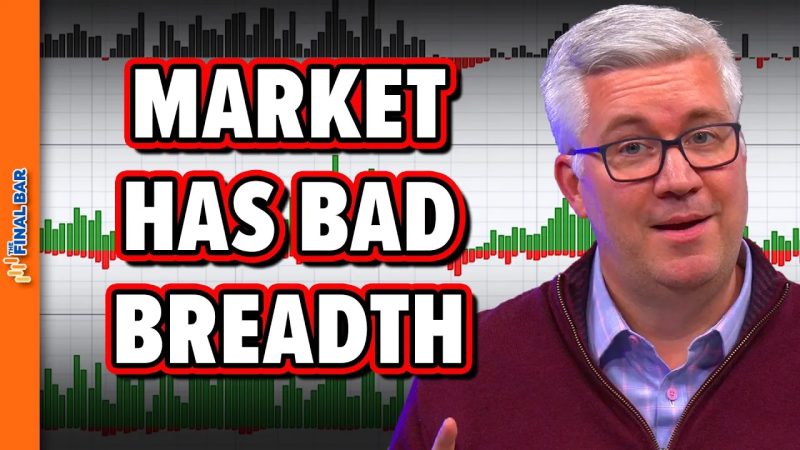Market breadth serves as a crucial indicator in assessing the overall health and strength of financial markets. Investors often rely on this metric to gain insights into the level of participation and the breadth of movements across a wide range of securities. When market breadth is strong, it typically signals a healthy and robust market environment, characterized by broad-based buying across various sectors and industries. On the other hand, poor market breadth can raise concerns and prompt investors to reevaluate their investment strategies and risk exposure.
One of the key aspects to consider when evaluating market breadth is the relationship between advancing and declining stocks. A high number of advancing stocks relative to declining stocks is indicative of strong market breadth, suggesting broad participation and confidence among investors. Conversely, an imbalance with more declining stocks than advancing ones may be a signal of weakening market breadth and underlying weakness in the market.
In addition to the advancing-declining stocks ratio, other factors such as trading volume, new highs versus new lows, and sector participation can provide valuable insights into market breadth. Monitoring these variables can help investors gauge the level of investor sentiment, market breadth, and the likelihood of sustained market trends.
So, should investors be worried about poor market breadth? The answer is not always straightforward. While weak market breadth may indicate underlying vulnerabilities and signal potential risks in the market, it is essential to look at the broader market context and consider other factors that may influence market movements.
For instance, during periods of market consolidation or rotation, it is not uncommon to see temporary weakness in market breadth as investors shift their focus from one sector or asset class to another. In such cases, poor market breadth may not necessarily be a cause for alarm but rather a reflection of shifting investor preferences and market dynamics.
However, persistent and widespread poor market breadth, especially accompanied by declining trading volume and increasing volatility, could be a more concerning signal. In such situations, investors may consider adjusting their portfolios, reducing risk exposure, or seeking safe-haven assets to protect their investments in anticipation of potential market downturns.
Ultimately, while monitoring market breadth is a valuable tool for investors, it is essential to consider it within the broader context of market conditions, economic indicators, and geopolitical events. By keeping a close eye on market breadth indicators and staying informed about market developments, investors can make more informed decisions and navigate changing market environments with greater confidence and resilience.






















